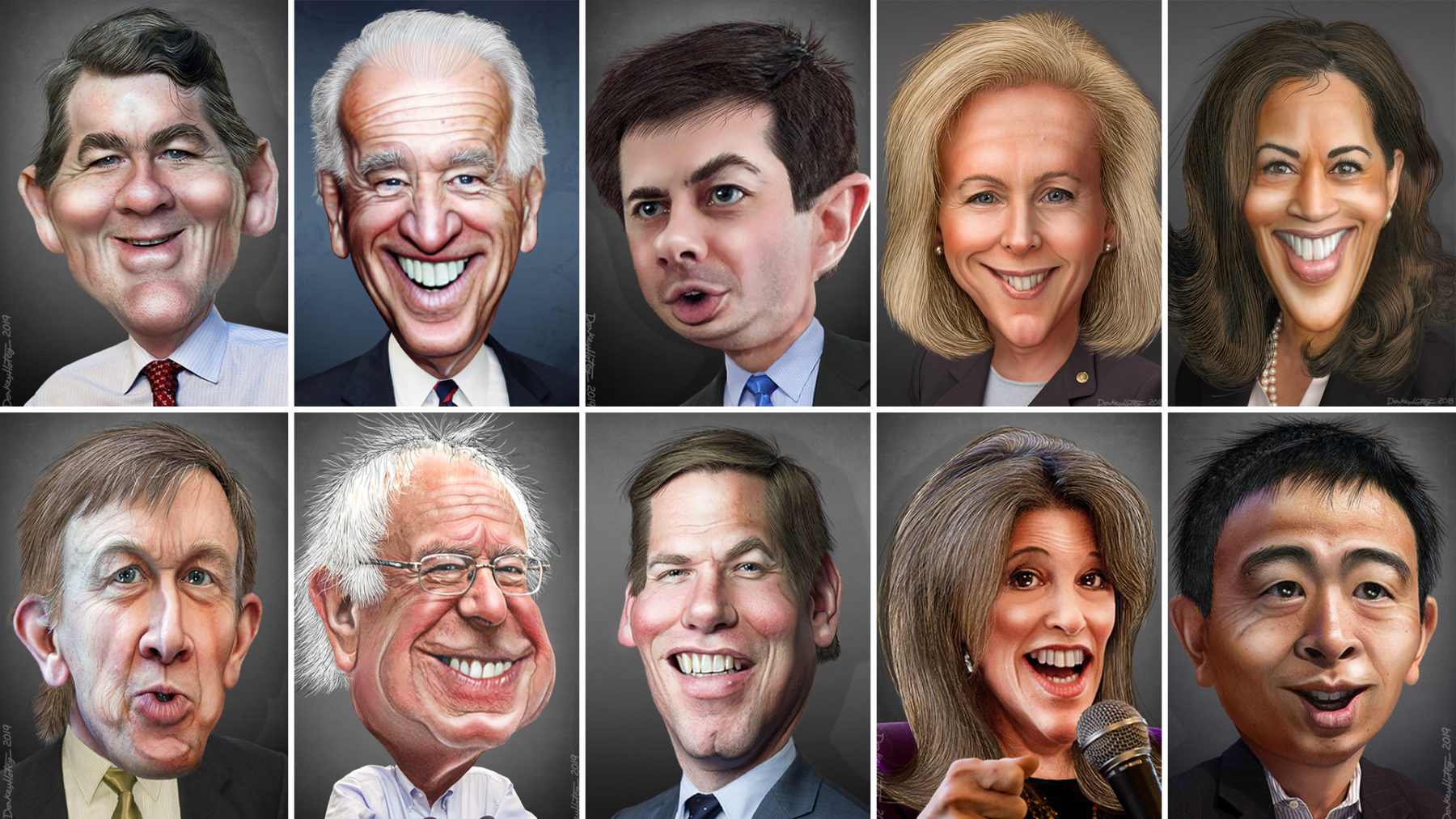Six Democratic presidential candidates—Cory Booker, Pete Buttigieg, Kamala Harris, Beto O’Rourke,Bernie Sanders and Elizabeth Warren—have answered a recent survey about HIV policy organized by AIDS United, the Act Now End AIDS coalition, and more than 50 other organizations. The politicians’ answers provide a unique window into how a number of potential presidents think about harm reduction.
Here are four key takeaways from survey responses that mostly seem comparable at first glance.
1. Mayor Pete stands out
Branding himself as a millennial, Pete Buttigieg, the mayor of South Bend, Indiana, flexed a strong understanding of some of the finer details of harm reduction. He traded out the misleading phrase “opioid epidemic” for “immediate epidemic of overdose deaths,” while also pointing out that multiple drugs, like “opioids, fentanyl or methamphetamine,” are fueling what he called a “substance use disorder epidemic.”
Buttigieg is the only candidate to acknowledge the major obstacle that the buprenorphine “X waiver” poses for medical providers interested in prescribing the lifesaving treatment, especially in rural spaces. He did not go so far as to call for “X-ing” the waiver, instead stating the need to “revisit” it. This, though, is still more than his rivals who responded. Besides omitting this issue from their positions, Senators Booker, Harris, Sanders and Warren have yet to sponsor a bill introduced in July 2019 that would eliminate the waiver process.
2. Everyone backs HIV decriminalization—but only three have specific plans
As people continue to be incarcerated for reasons related to their HIV status, it’s promising that all of the respondents agreed that HIV status ought not to be a criminal justice issue. Their responses varied: Sen. Sanders replyied with a single word (“Yes”) to the question about ending HIV criminalization, while Senators Booker and Harris were less direct, instead vowing to end laws that “stigmatize” people who are positive.
Of those with more specific plans, O’Rourke and Sen. Warren both support the REPEAL HIV Discrimination Act, which would initiate a national review of laws criminalizing HIV. Buttigieg suggests a different approach: He would direct his Department of Justice to “not prosecute people (or seek enhanced sentencing) because of their HIV status” and review its own policies to prevent future prosecutions, while directing the Centers for Disease Control and Prevention to issue guidelines for state legislatures.
3. Bernie’s anti-corporate zeal may cloud his understanding of the overdose crisis
Senator Sanders has defined his presidential campaign in opposition to “the billionaires,” and he has a position on the opioid-involved overdose crisis to match. In a survey response, Sanders pivoted away from what was asked of him—his approach to funding treatment services and syringe exchanges, as well as ensuring access to medication-assisted treatment—and instead stressed the need to “hold these pharmaceutical companies responsible for the destruction they caused and continue to exacerbate.”
While corporations’ bad practices in facilitating opioid use disorders are undeniable, justifying Sanders’ criticism, their centrality to the issue is is questionable. It has been shown that social and economic factors drive harmful outcomes. The latest fatal overdose data from the CDC shows that synthetic opioids like fentanyl were involved in the most deaths in 2018; deaths involving illicit opioids, like fentanyl and its analogs and heroin, far outweighed those involving prescription opioids.
But his criticism of corporations is also welcome. As expressed in his responses, Sanders supports authorizing generics for HIV pre-exposure prophylaxis medication. Beyond his survey answers, Sanders has expressed promising commitments elsewhere, like to safe consumption spaces.
4. Fifteen candidates remain silent
Most of the Democratic hopefuls have yet to respond to the survey. Notably, former Vice President Joe Biden, who has consistently led in the polls, and venture capitalist Andrew Yang, who recently came out in support of safe consumption spaces, were among those absent. These candidates’ failure to prioritize a survey offered by prestigious organizations about such a critical issue is disappointing.
Image by DonkeyHotey via Wikimedia Commons
9/12/2019 Correction: A previous version of this article stated that Pete Buttigieg has never said that healthcare is a human right. Although it appears as though he has not said it as explicitly as some of his fellow candidates, he has said that it should be regarded as a “right.”





Show Comments